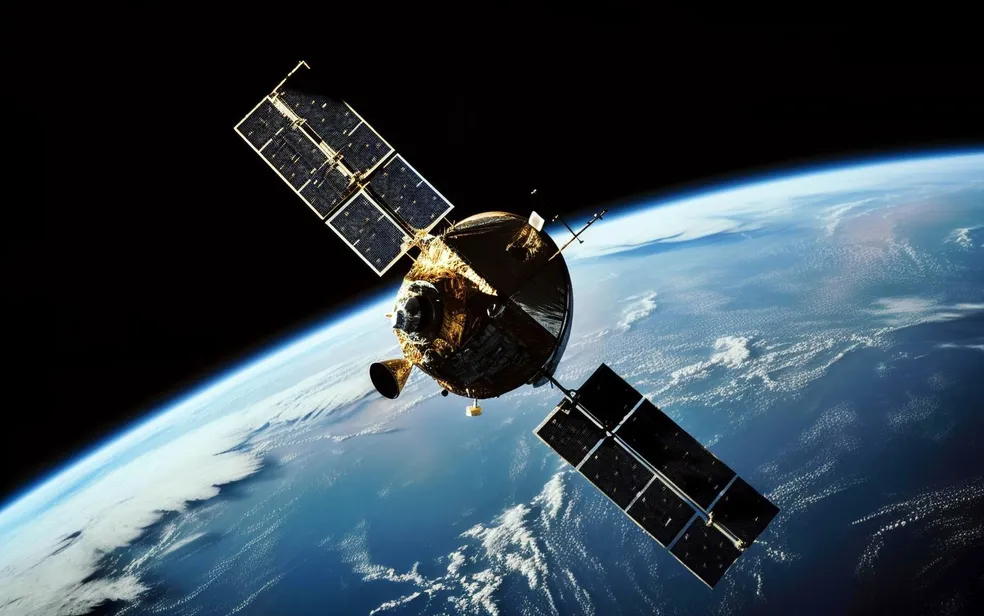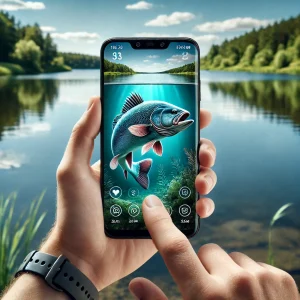Technological advancements have made real-time satellite applications essential tools in a variety of areas, from meteorology to personal safety. These applications provide accurate, up-to-date data that helps users and businesses make informed decisions based on detailed geographic information.
The use of satellite data for real-time monitoring and tracking has transformed the way we interact with our surroundings. From route planning to weather forecasting, satellite applications offer a range of functionalities that make everyday life easier and increase operational efficiency.
Practical Applications
Amidst so many possibilities, real-time satellite applications stand out for their ability to provide detailed information about any point on the globe in just a few seconds.
Google Earth
Google Earth is one of the most popular real-time satellite applications, offering a detailed view of any location in the world. With this application, users can explore detailed satellite imagery, topographic maps, and 3D buildings.
This application is extremely useful for educators, researchers and professionals who need quick and accurate access to geographic information.
Satellite Tracker
Satellite Tracker allows users to track orbiting satellites in real time. This app is particularly valuable for astronomy enthusiasts and professionals working in space technology, providing up-to-date data on the position and trajectory of satellites.
The tracking functionality helps predict satellite passes, a useful feature for planning astronomical observations and scientific studies.
Live Earth Cam
Live Earth Cam provides a unique experience by allowing users to watch live broadcasts from different parts of the world. This application connects to cameras installed in strategic locations, offering a real-time view of what is happening.
Ideal for virtual tourism or monitoring public places, Live Earth Cam opens up new perspectives for digital exploration of the planet.
Weather Satellite
Weather Satellite is essential for weather forecasting, providing up-to-date images of weather conditions around the world. Through this application, you can view developing weather systems and receive alerts of impending adverse conditions.
For meteorologists and weather enthusiasts, this app is a crucial tool for monitoring and predicting weather events.
ISS Live Now
ISS Live Now gives users the opportunity to view Earth through the cameras of the International Space Station. This app provides not only spectacular views, but also educational information about the space station and its projects.
It is an educational and inspiring tool that brings space closer to ordinary people, promoting greater interest in space science.
Environmental Impact and Monitoring
Explain how satellite applications are used to monitor environmental changes, such as deforestation, polar ice caps, and pollution levels. This segment could discuss specific cases where satellite technology has contributed significantly to conservation projects or to understanding climate phenomena.
Technological Advances in Satellites
Describe the latest advances in satellite technology, including satellite miniaturization and the development of satellite constellations such as Starlink. Discuss how these innovations have enabled an increase in the frequency and quality of data available for real-time applications.
Legal and Privacy Challenges
Address the legal and privacy issues surrounding the use of satellite imagery. This topic could explore how different countries regulate the capture and sharing of satellite data, and the challenges companies and governments face in balancing security with citizen privacy.
Applications in Crisis Management
Discuss how real-time satellite applications are essential in managing crises such as earthquakes, tsunamis, and wildfires. Provide examples of how these applications have provided critical data that has aided in rescue and damage mitigation operations.
Future of Real-Time Satellites
Outline the expected future for satellite applications, including planned new developments and how they could transform other areas such as transportation, communications, and defense. This segment may also explore the commercialization of space and its anticipated impact on the global economy.
Integration with Emerging Technologies
The integration of real-time satellite applications with emerging technologies such as artificial intelligence (AI), the Internet of Things (IoT), and Big Data is revolutionizing the way these applications are used and the type of data they can provide. This topic will explore how the combination of these technologies is creating new possibilities and improving the effectiveness of satellite systems.
Artificial intelligence
AI is being used to improve the analysis and interpretation of satellite data, enabling faster and more accurate identifications and predictions. For example, machine learning algorithms can be trained to automatically detect geographic changes or anomalous weather patterns from satellite imagery.
Internet of Things
With IoT, connected devices can send data to be correlated with satellite information, providing a more detailed and dynamic view of the monitored environment. This is particularly useful in areas such as precision agriculture, where sensors in the field can provide information on soil conditions that, when combined with satellite data, enable more efficient farm management.
Big Data
The vast volume of data generated by satellites can be overwhelming, but Big Data technologies enable the effective management, analysis and storage of this information. This enables extensive use of real-time and historical data for everything from weather forecasting to natural resource management.
The combination of these technologies not only improves the functionality of real-time satellite applications but also paves the way for innovations that can transform entire industries, offering new business opportunities and improvements in quality of life on a global scale.
How to Choose the Best Real-Time Satellite App
Choosing the right satellite app depends on a combination of factors including accuracy, functionality, usability, and cost. This topic will cover the essential criteria to consider when selecting a satellite app for personal or professional use, ensuring that you get the most suitable tool for your needs.
1. Purpose of Use
Clearly identify what you need the app for. Whether it’s for navigation, research, environmental monitoring, or education, each use may require specific features like increased location accuracy, real-time updates, or accessibility to historical archives.
2. Accuracy and Updates
Check the accuracy of the information provided by the app and how often the satellite data is updated. For critical applications such as natural disaster monitoring, it is crucial that the app provides accurate and frequently updated data.
3. Interface and Usability
Consider the app’s ease of use. An intuitive, easy-to-navigate interface is essential to maximizing the effectiveness of satellite data usage. Apps that offer customization and filters are particularly useful for tailoring the experience to your needs.
4. Compatibility
Make sure the app is compatible with your devices and operating systems. Some satellite apps may have specific requirements that limit their use to certain devices or require advanced technical capabilities.
5. Cost
Consider the cost of the app. Many satellite apps offer subscription models, one-time payments, or are free with paid options for additional functionality. Consider your budget and whether the cost is in line with the benefits the app provides.
6. Support and Development
Investigate the app’s customer support and update frequency. Good customer support can be crucial in situations where you rely heavily on the app. Additionally, apps that are regularly updated tend to offer better performance and new features.

Advanced Features
Real-time satellite applications also offer a range of advanced functionalities, such as environmental condition monitoring, urban planning, and crisis management. The ability to access accurate, up-to-date information is vital for professionals in many fields.
Conclusion
Real-time satellite applications are more than just technological tools; they are essential to understanding and interacting with our world. As satellite technology continues to evolve, the possibilities for these applications continue to expand, providing new opportunities to explore and understand the environment around us.
FAQ
- What are real-time satellite applications?
- These are programs that use satellite data to provide updated information about the Earth.
- How are satellite applications used in emergency situations?
- They provide crucial data for monitoring natural disasters and planning emergency responses.
- Can I access satellite images of my home in real time?
- Many apps offer high-resolution images, but they may not be real-time due to capture and privacy restrictions.
- What is the cost of using satellite apps?
- It ranges from free with basic functionality to paid subscriptions for advanced features.
- How can I get started with a satellite app?
- Choose an app based on your specific needs and availability in your region, download it, and follow the instructions to get started.



